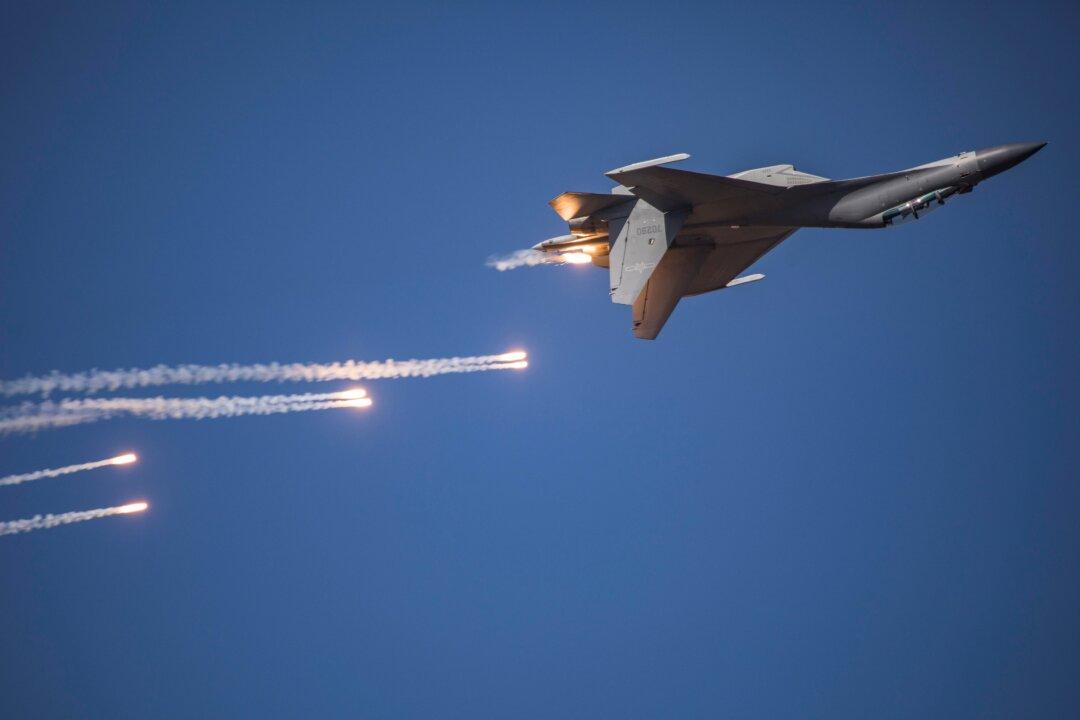Beijing has defended a PLA pilot’s dangerous air maneuvers made against an Australian military plane that was conducting maritime surveillance in international airspace in the South China Sea, stating the actions were “reasonable, and legitimate.”
A spokesperson for the Chinese Communist Party’s (CCP) Ministry of Defence claimed that the Australian P-8A aircraft entered its sovereign airspace over the internationally contested Paracel Islands, which China calls the Xisha Islands, and accused Australia of seeking to do close-in reconnaissance.




